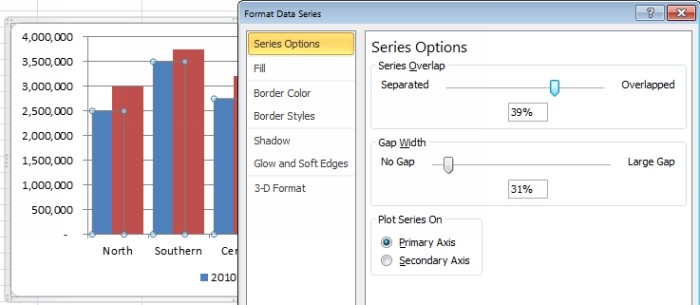
It’s time for the pointer to come into play. Step #7: Add the pointer data into the equation by creating the pie chart. Select each slice individually and change the color of the corresponding slices. In the Fill & Line section, click the Fill Color icon to open the color palette and pick your color for the slice. We will use red, yellow, and green colors to represent how well the imaginary sales team did its job-let’s hope nobody gets fired! Step #6: Change the colors of the remaining slices.

CREATE PIE CHART IN EXCEL MAC SERIES
You can now close the Format Data Series task pane. Once you’ve positioned the doughnut chart properly, click the Fill & Line icon in the pane, navigate to the Border section, and click the No line radio button to make the chart look nice and neat.

Next, you need to adjust the position of the chart to lay the groundwork for the future half-circle gauge. Click the Insert Pie or Doughnut Chart icon.Once you have your dataset sorted out, do the following: End: This special formula- =200-(E3+E4)- will help position the pointer properly by adding all the cells from the Value column ( 30+40+30+100) and subtracting from that sum ( 200) the pointer width ( E4) and your actual data value ( E3).In our case, we will display how much money a fictitious company earned from its sales in Arizona. Value: This is your actual data value.You can change the width however you see fit, but we recommend making it smaller than five pixels. Pointer: This determines the width of the needle (the pointer).The more detailed you want to display your data, the more value intervals you’ll need. Levels: These are the value ranges that will split the dial chart into multiple sections.Labels: These determine the intervals of the gauge chart labels.Prepare your spreadsheet as follows:Ī few words about each element of the dataset: Let’s start out our grand adventure by creating a dataset for both charts. The doughnut chart will become the speedometer while the pie chart will be transformed into the pointer. Technically, a gauge chart is a hybrid of a doughnut chart and a pie chart overlapping one another. Step #1: Prepare a dataset for your gauge chart. Without further ado, let’s dive right in. Here’s an example of the gauge chart you will learn to build from scratch: However, Excel’s massive bag of built-in visualization tools unfortunately has no ready-made solution to offer for such a chart.īut with a bit of spreadsheet magic, there is no obstacle you can’t surmount. Gauge Charts (also referred to as Speedometer or Dial Charts) save the day when it comes to comparing KPIs or business results against the stated goals. Bonus Step for the Tenacious: Add a text box with your actual data value.Step #11: Add the chart title and labels.Step #10: Hide all the slices of the pie chart except the pointer and remove the chart border.Step #9: Align the pie chart with the doughnut chart.Step #7: Add the pointer data into the equation by creating the pie chart.Step #6: Change the colors of the remaining slices.Step #5: Hide the biggest slice of the doughnut chart.

CREATE PIE CHART IN EXCEL MAC HOW TO
Return to Charts Home Excel Gauge Chart Template – Free Download – How to Create Create, Save, & Use Excel Chart Templates


 0 kommentar(er)
0 kommentar(er)
